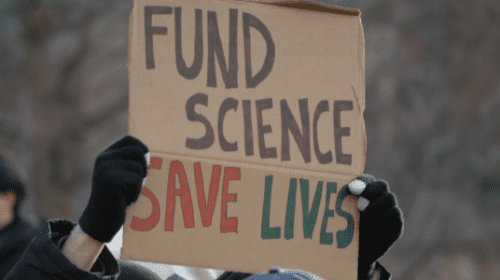Have you ever been in the company of someone whose presence just made you feel good? Maybe you felt that “vibe” with someone else, connecting through shared opinions, ideas, or lifestyles.
The positive influence of human connection on our lives is undeniable, and it holds profound significance, particularly for those on the path to recovery. Connection is a critical foundation of a successful recovery journey towards healing and personal growth.
What is Connection?
Connection is a feeling of closeness you have to another person. It’s a deep bond that makes you feel warm and fuzzy inside and helps you build trust. When you experience a genuine connection, you feel comfortable with that person and can let your guard down and be your authentic self.
Humans are social beings, and we need connections to function correctly. We experience connection at different levels and in different forms—with family, friends, support groups, or others with whom we have meaningful relationships.
When it comes to our social connections, our brains respond in ways similar to that of when we feel pleasure. These connections are a fundamental human requirement, and when these needs go unmet, they can significantly impact our overall well-being.
“To the extent that we can characterize evolution as designing our modern brains, this is what our brains were wired for: reaching out to and interacting with others,” says neuroscientist Matthew Lieberman in his book, Social: Why Our Brains Are Wired to Connect.
How Connection Impacts Your Mental Health
Being connected to another person can make a big difference in how we feel, whether good or bad. Being around our people can give us energy and boost our mood.
Conversely, if we’re around someone who drains our energy, we’re left with negative feelings, and we likely won’t feel as connected to that person. Having strong bonds with people is crucial to our mental well-being. They can positively impact our mental health and provide emotional support to navigate our challenges.
According to the Centers for Disease Control and Prevention (CDC), “When people are socially connected and have stable and supportive relationships, they are more likely to make healthy choices and better mental and physical health outcomes. They are also better able to cope with hard times, stress, anxiety, and depression.”
Supportive people are crucial to overcoming challenging life circumstances like addiction, loss, and health issues. It’s especially important for those struggling with mental health issues to feel connected to others who know what they’re going through.
Connecting with others can also help us lower our stress levels. Think about the last time you were hanging out with friends you felt deeply connected to. In those moments, you may have felt like none of your other daily stressors mattered, your friends were there to lift your spirits, and you may have left feeling energized, ready to tackle everything else. Our close connections can distract us from challenging things.
If you’ve experienced significant traumas, connecting with others who have experienced something similar can make you feel less alone and help you overcome your troubles. Connection can help you cope with negative feelings.
When you feel down or like the world is against you, having someone to talk to can help you feel better. This kind of emotional support is vital for a successful recovery.
Connection and Addiction Recovery
People struggling with addiction need support for many reasons. They may need help getting started with treatment, staying on track, and reintegrating into their routines after their initial recovery period.
Having accountability is a big part of the recovery process. Your people are there to keep you in line, remind you of your goals, and help you achieve them. Many people in recovery have an immense connection with other sober people because they “get it.” Knowing you’re talking to someone who’s been where you are is comforting.
Recovery is not always an easy journey, and it can feel lonely. Having people you can rely on is like having a safety net that’s there for you when you need it and to catch you if you slip.
Overcoming isolation
Addiction recovery can be an isolating experience. And going down that path without support is dangerous.
It’s important to reach out for help and take help when it’s offered. Join support groups online or in your area during your recovery journey, and contact your support systems regularly.
Connection and Self-Discovery
We often think of connection as a link between two people, but did you know connection can benefit you as an individual, too?
Genuine connections with another person allow you to see parts of yourself you didn’t know existed. You don’t have to worry about being judged as you try new things, make mistakes, learn, and grow. And you can rely on your close connections to build you up and tell the truth—even when you don’t want to hear it.
Your real supporters are the ones who give you realistic advice because they want you to be your best, even when that advice can be difficult to hear.
A lot of self-discovery is required for the recovery process, and building healthy connections can help. You must accept that you are the way you are, learn about yourself and what triggers you, and commit to doing the work to improve yourself.
Building Healthy Connections
Communication is a key part of building meaningful connections. But for some people in recovery, connecting with others is difficult.
You might have burned too many bridges while in active addiction, or you may not trust or have healthy relationships with those close to you.
A trained professional, such as a therapist or counselor, can provide guidance and support as you navigate the challenges of forming meaningful connections with others.
Don’t forget to set healthy boundaries. Although connection is essential, some people in your life may not understand where you draw the line, whether with time together or the give-and-take of support. Remember to put yourself first.
Good communication can help you understand someone else and help you be understood. Try to be a good listener and express yourself openly and honestly.
Tips for your next conversation
No need to use fancy words or overthink what you’re going to say. Many times, being there for someone is enough. The CDC has some advice to get you started on the right foot:
Be flexible with the format.
There are so many ways to communicate, and you can have an entire conversation without seeing the other person’s face. However, this can be challenging if you prefer an in-person connection and the other person likes to talk via text or email.
Be open to exploring various ways to communicate. You may want to suggest talking on the phone or meeting in person occasionally.
Be ready to listen.
Ensure you’re in a good headspace to support the other person and receive support. Additionally, be sure you’re prepared if something emotional comes up.
Put your phone away and limit other distractions. Don’t begin a deep conversation if you have to leave in five minutes. You wouldn’t want someone to do that to you, would you?
Ask open-ended questions.
Avoid yes or no questions, as they tend to limit the conversation. Asking more specific questions like “What are you doing to take care of yourself lately?” is a great way to see how someone is doing and share how you’re doing too.
Show your concern and support.
If the other person is struggling, use validating phrases like “That must be hard,” “You are OK to feel that way,” and “I imagine you’re upset right now.”
Before giving advice, ask if they want it. Some people prefer to be heard and just want to vent. Remember, it’s all about supporting them, not necessarily fixing the problem.
End on a positive note.
Deep conversations can get tricky to maneuver. You may find that you’ve opened a floodgate of information and emotion that is hard to end when necessary.
If you’re nearing the end of your convo, thank them for being willing to share and remind them that you’re available if they need support. Try to make a plan to connect with them again in the future so you don’t lose touch.
How to Find Connections in Recovery
Therapy or mental health and substance abuse counseling can serve as a great way to build and maintain connections. Ask your therapist for suggestions on where to find supportive people in your area.
Finding a connection online today is as easy as picking up your phone. Use social media to connect with others who “get it.” You can also join support groups and sober communities or use online forums to talk to others in recovery.
You may have made lifelong friends if you spent time in treatment. Many facilities have an alumni program you can lean on in recovery.
The impact of connection in our lives and recovery substantially impacts our overall well-being. It’s about connecting with others and learning more about who we are as individuals.
Make it your mission to find and maintain healthy connections in your life. For those in recovery, connection isn’t just a concept; it can be a lifeline.

























